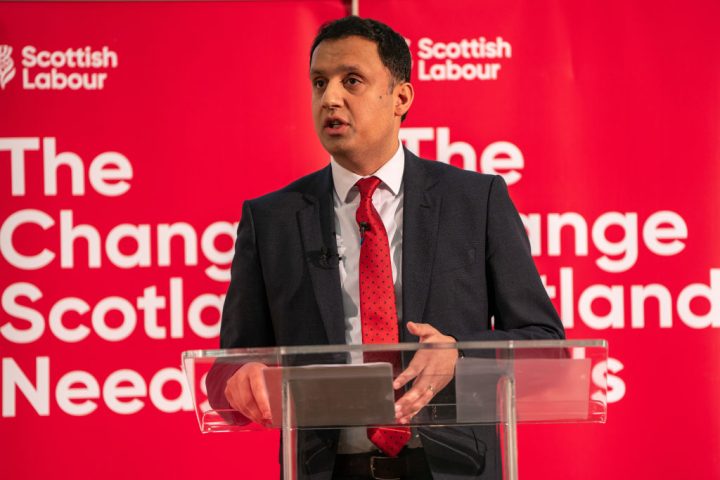Given the SNP’s abject disarray, it is no surprise to see Scottish Labour demanding a snap Holyrood election. After all, for the first time in more than a decade it is Anas Sarwar’s party – and not the Scottish Nationalists – who are most likely to gain by the ballot box. Sarwar himself summed up the bullish mood in the party succinctly, telling reporters: ‘I do not fear an election, I relish an election.’
And this is not idle talk; Scottish Labour has lodged a motion of no confidence in the Scottish government that would, in the unlikely event it is approved by MSPs on Wednesday, force the entire SNP administration to resign and in all likelihood precipitate a Scottish election. Even if the Scottish Labour motion fails, it is possible that a devolved election is still in the offing, either by design – such as a new SNP leader seeking a mandate – or by process, such as the Scottish Green Party refusing to endorse a new SNP leader as First Minister, thereby depriving them of the necessary majority. Scottish Labour would, in Sarwar’s own words, ‘relish’ either scenario. That is, at least, what he will continue to claim publicly, but the reality is somewhat different.
There is no doubt Labour is in its strongest position in Scotland for many years, but a contest now would not be in the party’s best interests, most obviously as there is no guarantee it would win. Keir Starmer has been able to call for a general election for some time, safe in the knowledge he has a poll lead of around 20 points. In contrast, Scottish Labour at best leads the SNP by a point, and in many surveys still marginally trails the Nationalists. With time and further SNP turmoil, as well as additional resource from the central party, Scottish Labour would expect to make further gains. But the outcome of a snap election now – coming at a time when the UK party is focused wholly on the imminent general election – would be uncertain.
This is particularly the case as Sarwar is still in the early stages of his mission to modernise Scottish Labour. It is simply not yet ready to fight a Holyrood election, either in terms of personnel or policy. The party currently has no candidates in place for Holyrood seats, while many of the incumbents are either incompetent or politically unreliable. Years in the doldrums has gutted the party of talent, and it is a struggle to think of many in the current crop of MSPs who could credibly front a campaign, let alone make competent ministers. Meanwhile, a cohort of clandestine Corbynistas remain on the backbenches and could cause Sarwar political difficulty if allowed to run again.
Similarly, Scottish Labour has not yet articulated a vision of how it would govern differently from the SNP, nor developed the policies to underpin such a vision. In the coming days, the party will inevitably make noises about moving ‘to an election footing’ as part of an attempt to address these concerns, but this will mean little in practical terms. Were there to be a snap Holyrood election in the short term, Sarwar would effectively be trying to sell the public a house without even having laid the foundations.
In contrast, having the next devolved election as planned in 2026 allows Sarwar the time and space to resolve these issues, while having the added attraction of giving the SNP more time to turn in on itself. A strong showing in Scotland at the general election later this year will only add to Scottish Labour’s momentum and the feeling that a Sarwar-led government after 2026 is irresistible. That is why, while Sarwar is right to no longer fear taking on the SNP in an election, he should be wary of relishing the prospect now.






Comments